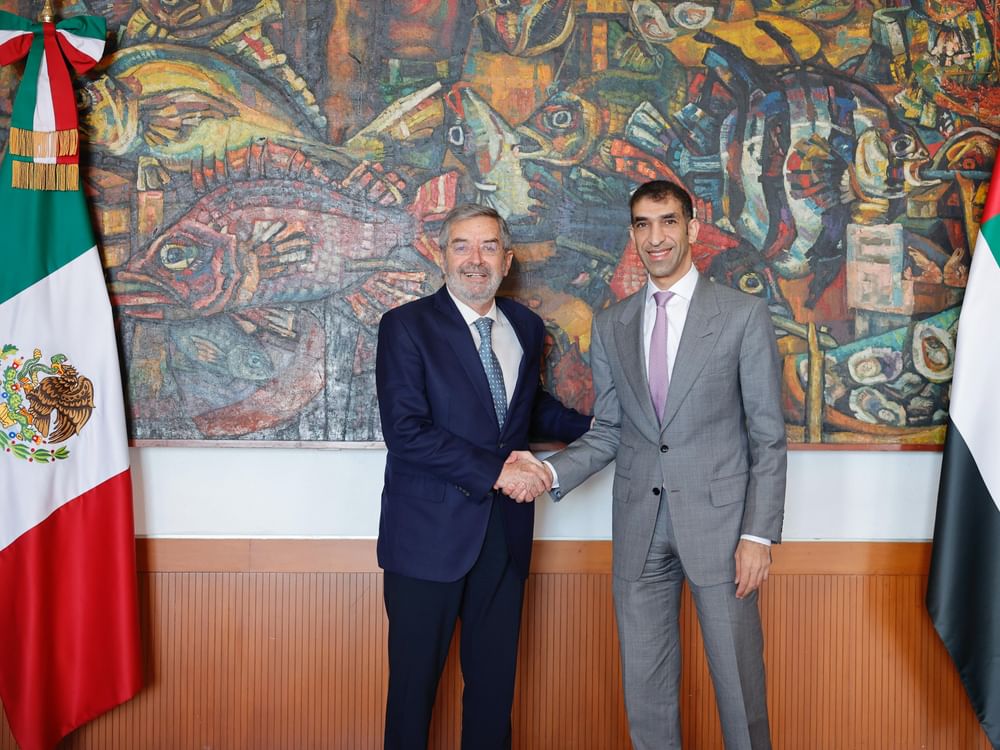

On February 5, 2025, Mexican Deputy Foreign Trade Minister Luis Rosendo Gutierrez met with senior U.S. officials at the White House to establish a framework for ongoing economic dialogue between the two nations. The discussions primarily focused on strengthening regional supply chains and enhancing the traceability of foreign investment, although tariffs were notably not addressed during this meeting [6e79b09a].
This dialogue comes at a time when Mexico is also actively seeking to bolster its trade relations with other countries, including the UAE. On January 11, 2025, Dr. Thani bin Ahmed Al Zeyoudi, the UAE Minister of State for Foreign Trade, visited Mexico City to enhance trade and investment relations. During his visit, Al Zeyoudi engaged with senior officials to discuss collaboration opportunities across various sectors [a6b3a147].
The non-oil trade between the UAE and Mexico has seen a significant increase of 20.8% in 2023, reaching a total of $2.6 billion. This upward trend continued into 2024, with trade amounting to $2.2 billion in the first ten months, marking a 1% increase compared to the previous year [a6b3a147]. Al Zeyoudi emphasized the potential for economic integration and the establishment of new partnerships, particularly in agriculture, industry, services, infrastructure, and tourism [a6b3a147].
The simultaneous efforts to engage in economic dialogues with both the US and UAE highlight Mexico's strategic approach to diversifying its trade relationships and enhancing its role in international markets [6e79b09a][a6b3a147].